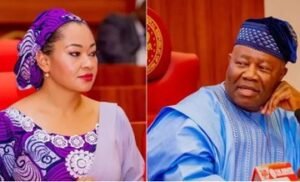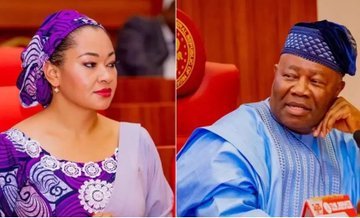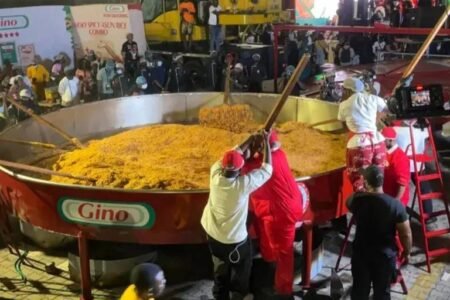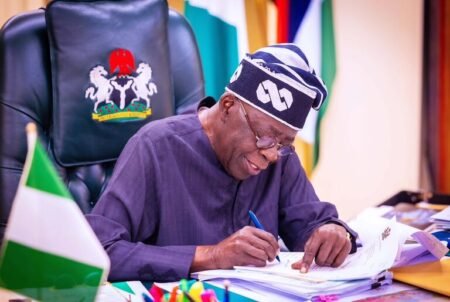President Bola Tinubu’s boast that Nigeria has already smashed its 2025 revenue target has sparked more questions than applause. While the government celebrates record collections, ordinary Nigerians are still battling crushing food prices, joblessness, and collapsing infrastructure.
Hosting former CPC members at the Villa, Tinubu declared: “Nigeria is no longer borrowing any dime from local banks. The economy is stabilised. When I took over it was ₦1,900 to a dollar. It’s ₦1,450 now.”
The 2025 Appropriation Act set revenue at ₦18.32 trillion, but collections have surged beyond ₦20 trillion in just eight months, powered largely by non-oil income. Oil output also climbed to 1.8 million barrels per day, while VAT and company tax receipts hit record highs.
On paper, it’s a fiscal success. In reality, Nigeria’s public debt has ballooned to ₦149 trillion and could touch ₦200 trillion by year’s end. Food inflation, poor infrastructure, and insecurity remain daily struggles.
Experts warn of “money illusion”: headline figures look impressive, but inflation and a weak naira erode their value. They insist the real test is whether government revenues deliver jobs, cheaper food, working hospitals, safe roads, and schools that function.
Analysts say the reforms; subsidy removal, tax expansion, exchange rate unification are biting, but yet to heal. The World Bank agrees: macro stability is back, but living standards remain dire.
Dr. Muda Yusuf of CPPE summed it up: “The budget is too small for the size of our economy. We need to prioritise spending that touches lives.”
For now, Tinubu can boast of revenue wins. But until Nigerians feel it in their pockets, the celebration may ring hollow.











